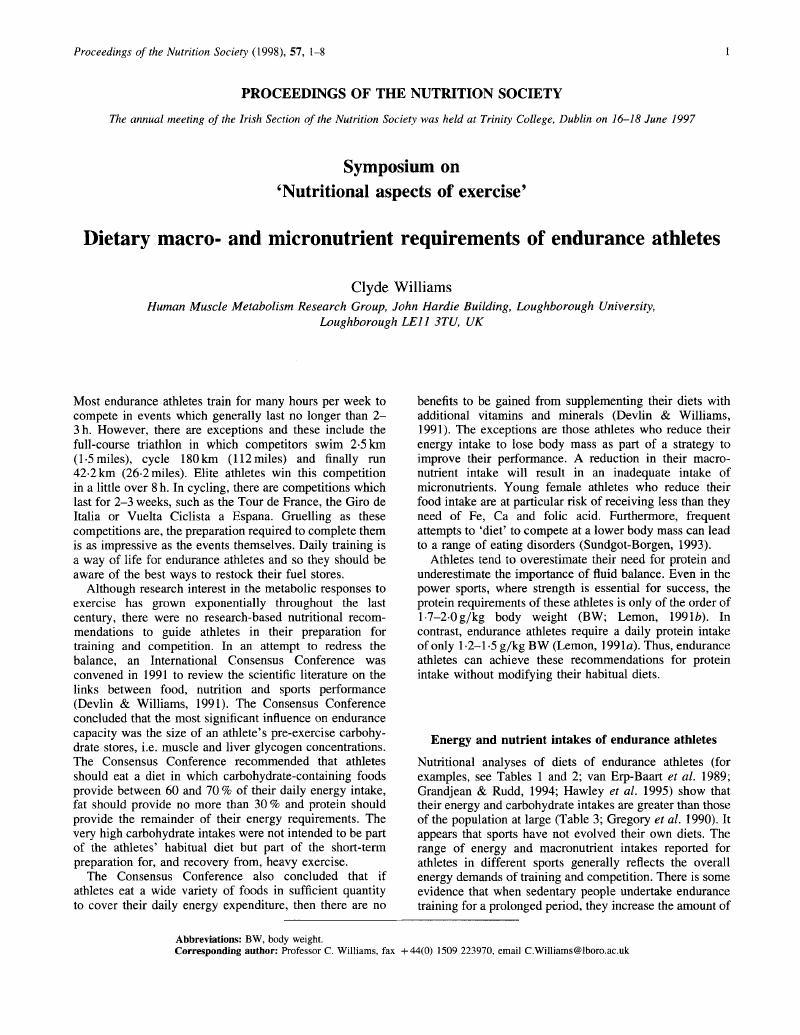Crossref Citations
This article has been cited by the following publications. This list is generated based on data provided by Crossref.
Hardy, Gil
Ball, Patrick
and
McElroy, Bruce
1998.
Basic principles for compounding all-in-one parenteral nutrition admixtures.
Current Opinion in Clinical Nutrition and Metabolic Care,
Vol. 1,
Issue. 3,
p.
291.
James Stubbs, R
and
O’Reilly, Leona
1999.
Neural and Metabolic Control of Macronutrient Intake.
Hardman, Adrianne E
1999.
Interaction of physical activity and diet: implications for lipoprotein metabolism.
Public Health Nutrition,
Vol. 2,
Issue. 3a,
p.
369.
Ishihara, Kengo
Oyaizu, Shinichi
Onuki, Koichiro
Lim, Kiwon
and
Fushiki, Tohru
2000.
Chronic (-)-Hydroxycitrate Administration Spares Carbohydrate Utilization and Promotes Lipid Oxidation during Exercise in Mice.
The Journal of Nutrition,
Vol. 130,
Issue. 12,
p.
2990.
Hardman, Adrianne E
2000.
High-carbohydrate diets, physical activity, and plasma lipoprotein lipids.
The American Journal of Clinical Nutrition,
Vol. 72,
Issue. 4,
p.
1061.
Fletcher, Andrew J W
Goodfellow, Mark R
Forhead, Alison J
Gardner, David S
McGarrigle, Hugh H G
Fowden, Abigail L
and
Giussani, Dino A
2000.
Low Doses of Dexamethasone Suppress Pituitary-Adrenal Function but Augment the Glycemic Response to Acute Hypoxemia in Fetal Sheep during Late Gestation.
Pediatric Research,
Vol. 47,
Issue. 5,
p.
684.
Ferreira, Antonio Marcio Domingues
Ribeiro, Beatriz Gonçalves
and
Soares, Eliane de Abreu
2001.
Consumo de carboidratos e lipídios no desempenho em exercícios de ultra-resistência.
Revista Brasileira de Medicina do Esporte,
Vol. 7,
Issue. 2,
p.
67.
Mizunoya, Wataru
Haramizu, Satoshi
Shibakusa, Tetsuro
Okabe, Yuki
and
Fushiki, Tohru
2005.
Dietary conjugated linoleic acid increases endurance capacity and fat oxidation in mice during exercise.
Lipids,
Vol. 40,
Issue. 3,
Burns, Stephen F.
Hardman, Adrianne E.
and
Stensel, David J.
2008.
Brisk walking offsets the increase in postprandial TAG concentrations found when changing to a diet with increased carbohydrate.
British Journal of Nutrition,
Vol. 101,
Issue. 12,
p.
1787.
Bolhuis, D. P.
Lakemond, C. M. M.
de Wijk, R. A.
Luning, P. A.
and
de Graaf, C.
2010.
Effect of Salt Intensity on Ad Libitum Intake of Tomato Soup Similar in Palatability and on Salt Preference after Consumption.
Chemical Senses,
Vol. 35,
Issue. 9,
p.
789.
Drenowatz, Clemens
Eisenmann, Joey C.
Carlson, Joseph J.
Pfeiffer, Karin A.
and
Pivarnik, James M.
2012.
Energy expenditure and dietary intake during high-volume and low-volume training periods among male endurance athletes.
Applied Physiology, Nutrition, and Metabolism,
Vol. 37,
Issue. 2,
p.
199.
Margaritis, Irène
2019.
Nutrition and Skeletal Muscle.
p.
151.





